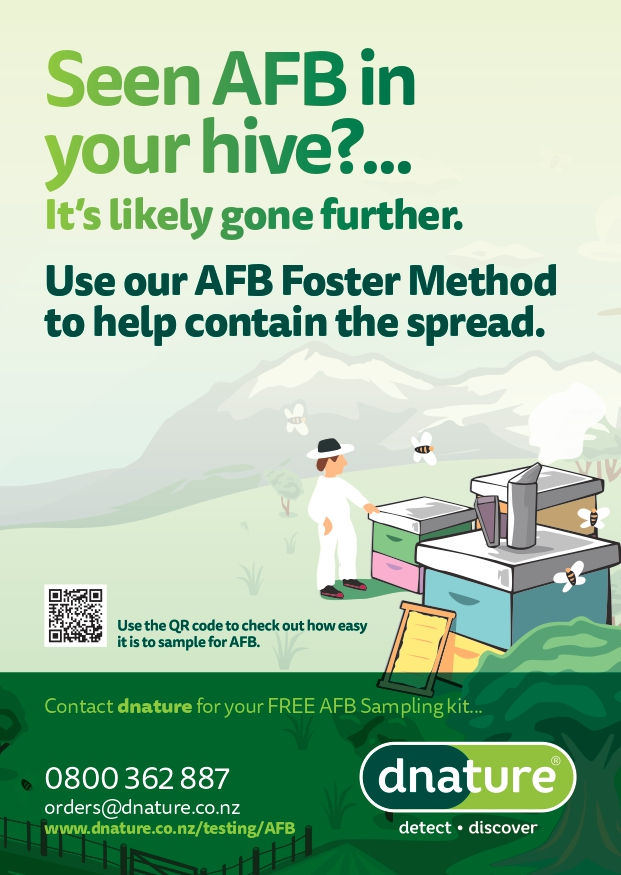Don’t Look Back in Anger...
- Dave Black

- Sep 2, 2025
- 4 min read
What can we learn from a Hertfordshire beekeeper’s 1939 letter to The British Bee Keepers’ Association (BBKA) magazine Bee World? That New Zealand’s current turmoil over beekeeping industry representation is not entirely unique, and that there are examples from not just other locations, but through history, which could help guide our thinking.
By Dave Black
“Wherever one goes one meets beekeepers who earnestly desire to see some kind of Central Organization at work which really represents beekeeping as a whole, to which all can belong, and which can speak and act in the name of all beekeepers in the country. A new generation is arising which is not interested in the quarrels of the past, and even the old antagonists are beginning to see how much has been lost, and how little gained by these unfortunate disputes. Already there is talk of new proposals for bringing about this greatly to be desired object”
I’m sure you have heard this sentiment expressed recently, although the style probably reveals in this case it comes from a different time and place. In 1939, a Hertfordshire beekeeper L. Illingworth (who was one of the BBKA’s Presidents 12 years later) was writing in the organisation’s journal, Bee World[i].

The Background
The early years of the BBKA were promising but tumultuous. For many reasons British agriculture, and British apiculture, was changing. The British statutory body responsible for agriculture was originally the Board of Agriculture, briefly established in 1773 (because of a war) and put on a more permanent footing (after another war) in 1884, and after repeated outbreaks of a lethal cattle virus and foot and mouth disease, at the same time as cheap grain from the Americas and bad weather debilitated the agricultural economy.
‘State interference’ became indispensable. Even so a ‘free trade’ lobby stifled government intervention in farming, and a growing body of farmers saw their livelihoods ruined. British agriculture, and the apiculture that accompanied it, never recovered. The same thing played out for suburban, sub-rural beekeepers. The gradual introduction of moveable-frame hives, bouts of ‘Isle of White’ disease in the early 1900s, and as the foulbroods were recognised as an existential threat, beekeepers needed someone with actual power (the government) to intervene.
Collective Action
They were out of luck, simply not important enough, the free trade team ruled. Collective action was all they had. The BBKA, the country’s collective ‘union’ of beekeepers, had formed in 1874. The first Foul Brood Disease of Bees Order, enabling legislation from the Board of Agriculture, even though the need was recognised, took another 68 years until 1942. In 1939 Illingworth was frustrated by seeing the power of the organisation to act drained by squabbling between the BBKA and various other groups (‘County Associations’) of beekeepers. He continued;
“...we beekeepers are mostly quite ordinary folk and therefore need a sound organization that will promote smooth working, and prevent anyone from exercising more influence than he has a right to...The dog ought to wag the tail, not the tail the dog.”
This was not quite the democratic appeal it might seem to our modern eyes. ‘Mostly quite ordinary folk’! An 1890 list of the BBKA’s 44 Officers and Committee at the time includes two Princesses, three Dukes, six Earls, three Bishops, a Marchioness, a Viscount, two Baronesses, three Lords, one Lady, six Reverends, a Sheriff, two Navy Captains and two MPs. The few remaining to be addressed as ‘Esquire’, or ‘Mr’. It wasn’t very different in the inter-War years the author is writing in, and of course, only men carried any real authority anyway. He goes on with some quite specific suggestions:
“If it is said that it is not desired that the Central Body should itself carry out any scheme, but merely provide a really representative assembly to work out and recommend schemes for the County Associations to carry out, then unity will not be achieved any more this way. The Central Body will become a mere debating society expressing pious opinions... It is most important that the Central Body in any scheme should control the purse, as the House of Commons does. Without this there can be no true democracy. When it does so, and the Representative Assembly carries any measure, all the Local Branches carry it out, even though they voted in the minority against it. Without control of the purse the minority refuses to carry out the policy voted in the Assembly, which is not democracy but anarchy... In any scheme of reform all the sacrifices must not be on one side; the County Associations, as well as the B.B.K.A., must be prepared to reform themselves, and to scrap much of what has hitherto proved a hindrance to progress.”
A beekeepers’ conundrum
Few will be as aware as I am that British and Kiwi beekeeping exist in very different worlds, but they have something in common with each other, and all the other beekeepers that have ever existed. Beekeeping can start on a whim; no special equipment, no land, no money. That though is the root of the occupation’s unique weakness, it’s powerless to chart its own path. Owning nothing, consuming nothing, and producing nothing essential, beekeepers have no economic power and can only preserve their livelihoods by nurturing good will and collective action. We see this effort faltering time after time. The cautionary phrase “Those who cannot remember the past are condemned to repeat it”[ii], or the many variations of it you will have heard, is worth recalling.
References
[i]Illingworth, L., 1939. The Re-Organization of Beekeeping in England. Bee World 20, 51–53. https://doi.org/10.1080/0005772X.1939.11093883 (Paywalled)
[ii]Spanish-American philosopher George Santayana, The Life of Reason: The Phases of Human Progress Vol 1, Reason in Common Sense p. 284








Comments